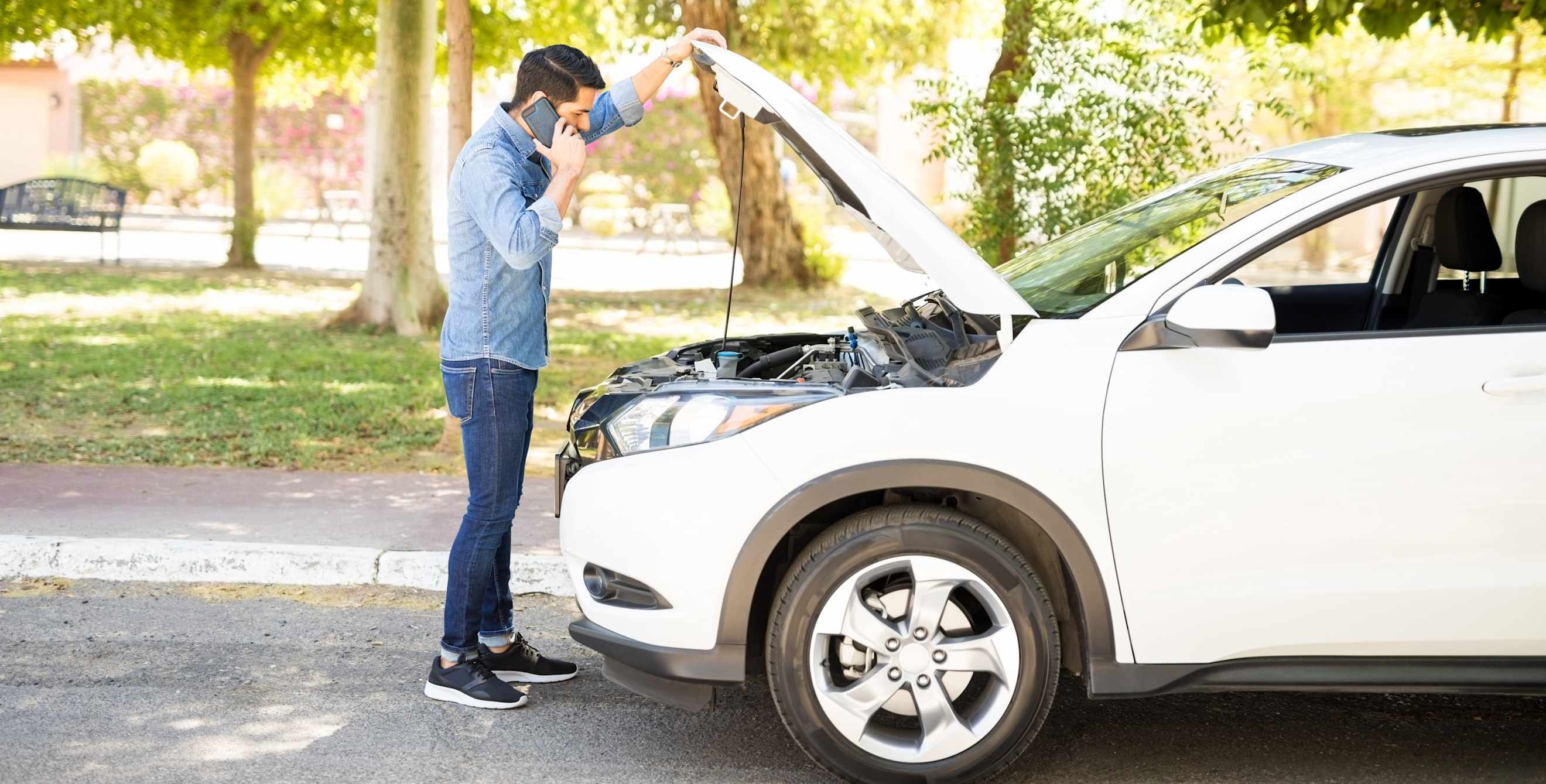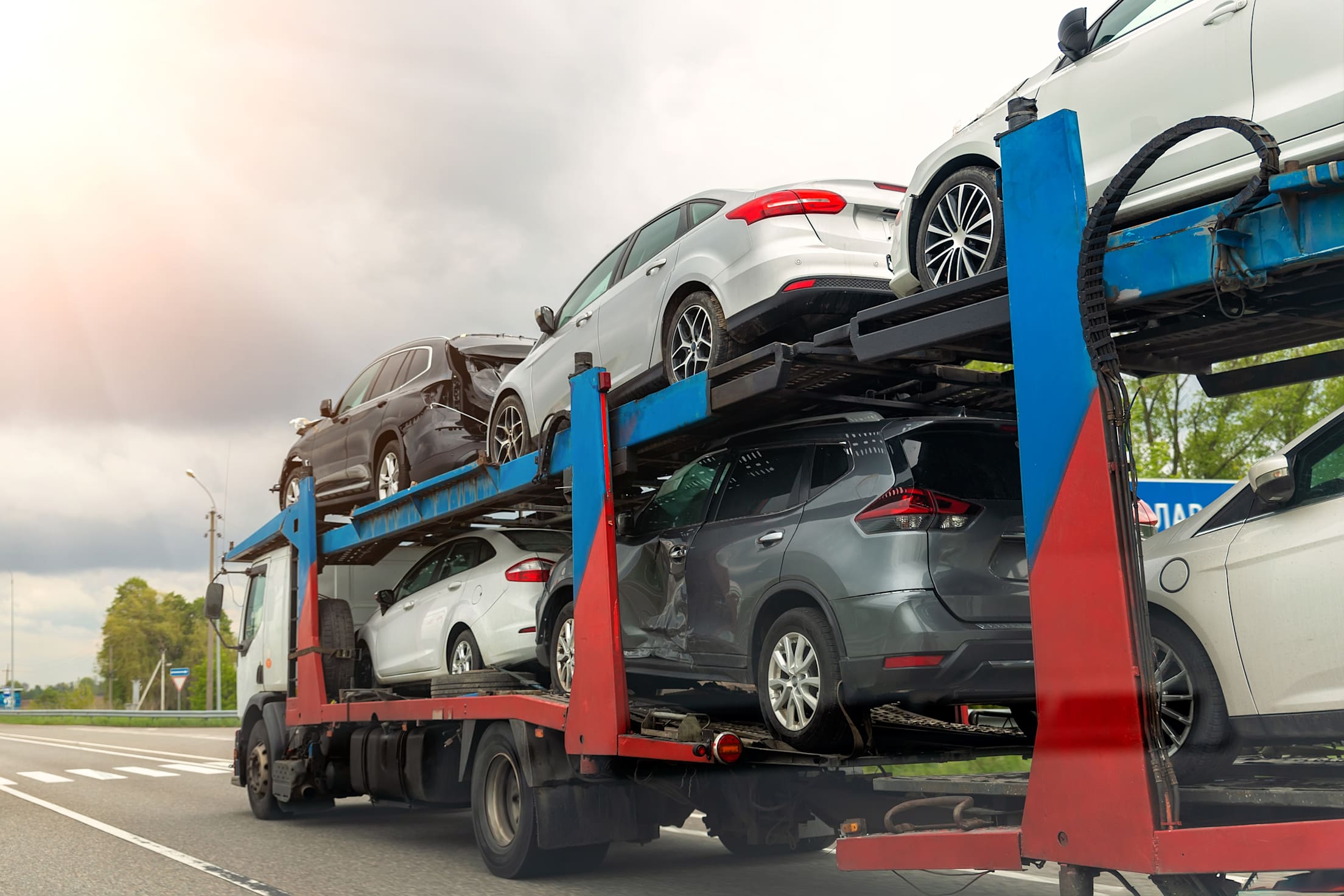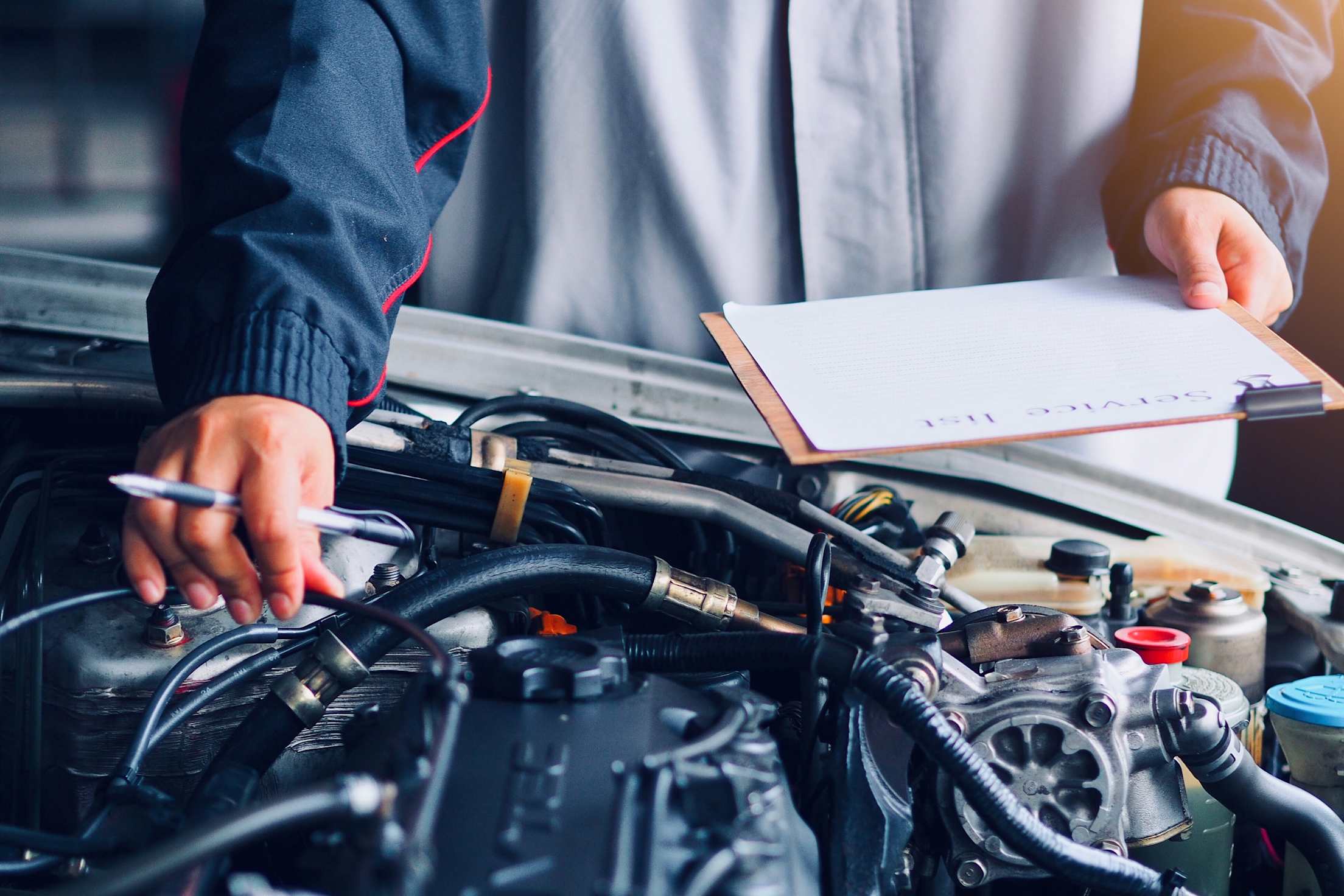
What is a Salvage Title?
Here's what you need to know if you're considering buying a vehicle with a salvage title.

Vehicle costs are still high, in part due to inflation and supply chain issues. As of August 2022, the average price for a new vehicle stood at a staggering $48,301, according to Kelley Blue Book. In an effort to cut costs, you may be looking at lower priced vehicles and come across what’s referred to as a “salvage title.”
What is a salvage title?
If you see the term salvage title on a vehicle, it can be a warning sign that the car has experienced significant damage.
Salvage titles are a classification issued to a vehicle that has experienced irreparable or prohibitively expensive damage, either through theft of parts, a collision, or a natural disaster. “The damage is such that the insurance company will no longer agree to coverage of the vehicle,” says Julie Bausch, managing editor at Car Talk. “The value of the car has dropped so low, it is no longer worth it to the insurance company to grant a policy.”
In many cases, vehicles with a salvage title are sold for their parts. Typically a vehicle that comes with a salvage title can’t be registered or driven unless it has been rebuilt and passes certain inspections in your state.

What kind of damage can cause a car to have a salvage title?
A salvage title means that there is damage to the vehicle, but the type of damage can vary. “Damage can include body damage from a vehicle collision, major mechanical damage, flood damage, or fire,” says Travis Mock, director of car repair strategy at AAA Automotive Repair Centers.
Generally, a salvage title is placed on a vehicle after it’s determined to be a total loss. However, the extent of damage required for a salvage title can vary from state to state. In Nevada, a salvage title refers to a total loss where the vehicle’s damage and required repairs are more than 65 percent of the market value of the car. In Wyoming, that percentage jumps to 75 percent. Alaska, Arizona, California, and Montana all use total loss formulas whereby a car is given a salvage or junk title if the cost of repairs plus the vehicle’s scrap or salvage value are greater than or equal to the actual cash value of the vehicle without the damage.
What are the implications of a salvage title?
A salvage title is more than just a label denoting previous damage. This title makes it illegal to drive the damaged vehicle, it cannot be registered for use, and insurance companies typically won’t insure it as is.
It may also be difficult to obtain financing for a vehicle with a salvage title. Plus, the likelihood of reselling it may be minimal. “Salvage title cars are rarely a good investment, and auto loan lenders and financial institutions know this, so they will probably not grant financing,” says Car Talk’s Bausch. “If a car is issued a revived salvage title, then you could consider it, but with caution.”
Salvage titles have a lower value due to the damage. According to Kelley Blue Book, salvage titles can mean a lower value of 20 to 40 percent, however the vehicle should be individually appraised.
A salvage title isn’t something to take lightly and can be a warning sign for potential issues down the road.

What should buyers know about rebuilt or revived salvage vehicles?
A revived salvage title means the vehicle was repaired or rebuilt and passed inspection. While the vehicle can now be registered and driven, insurance options may still be limited, according to Mock.
One thing to be on the lookout for is a practice referred to as “title washing” where fraudsters remove important information, such as a salvage title, to trick consumers into paying more. Not only could this lead to a higher price, but it could also mask potential safety issues. To avoid scams like this, it’s important to check the vehicle’s history through CarFax using the Vehicle Identification Number (VIN) before buying.
Does it make sense to buy a car with a salvage title?
Given how costly it is to buy a used or new car right now, seeing a lower price tag can feel like a good thing. But if there’s a salvage title or a rebuilt or revived salvage title, it could spell trouble and be more hassle than it’s worth.
“Generally speaking, buying a vehicle with a salvage title is not recommended,” Mock says. “There are often more issues discovered after the purchase, and these can be safety related issues.”
So what should you do instead? You “would be much better off trying to find an inexpensive used car with a relatively clean vehicle history, some worth to it, and a solid insurance policy,” says Bausch. That way you know what you’re getting into and have less risk when buying a car.